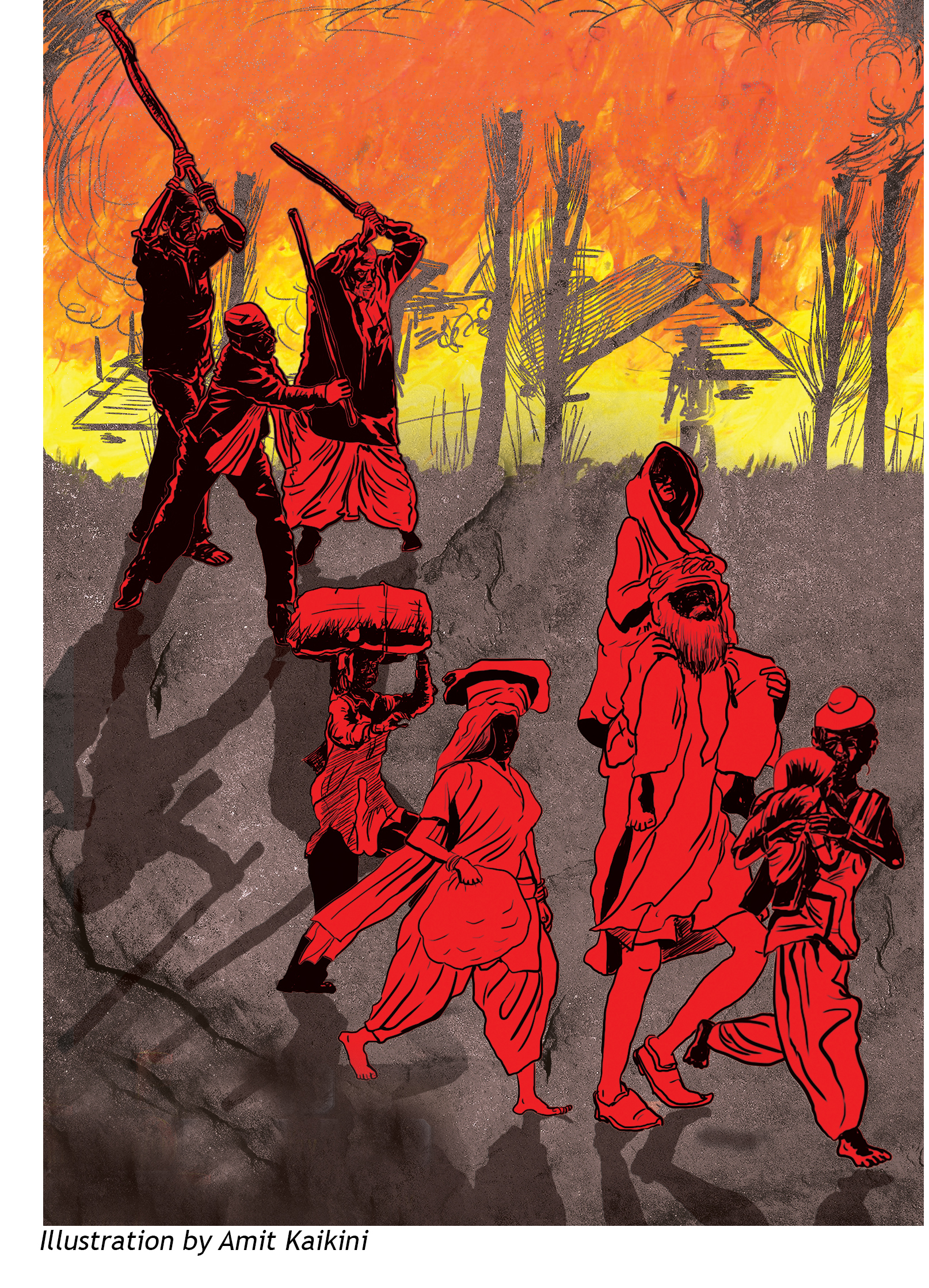HOME | AUTHOR BIO | EXCERPTS | AUTHOR'S NOTE | HISTORICAL BACKGROUND | CONTACT
Author's Note
I was born in British India. In 1947, when I was nine, the country was partitioned, and a flood of people fleeing Pakistan arrived. Many had suffered terrible atrocities. It was my first contact with refugees.

When Mahatma Gandhi was murdered in 1948, I was living in Pune. Because Gandhi's assassin was a Maharashtrian Brahmin, Brahmin homes were looted and burned. I saw this happen to some of my friends.
Over the years I continued to meet many refugees from Pakistan and hear their stories. Some I met were from divided Muslim families, like the parents I met in India who pined to see their grandchildren in Pakistan.
In 1963 I moved to Canada, and later to the United States. In both countries, I met many refugees—so-called "displaced persons"—from Europe, and later from Bangladesh.
Refugees' stories, I learned, have common themes. Refugees are not migrating by choice, and most never fully recover from the trauma of the loss of their homeland.
When the Khalistan movement started in India, I watched from afar, dreading another wave of refugees. I began writing this novel in 1985 in my mother tongue, Marathi. My father helped, filling me in from India on relevant news developments, and offering encouragement. I finished the book in 1988 and returned with it to Pune, my hometown. I had published a couple of books in Marathi by then, but when publishers learned what this book was about, they wanted nothing to do with it; they were afraid of militants. In 1986, a general had been assassinated in Pune for leading an attack on Sikh temple.
My father passed in 1989, and I was devastated. The novel languished. Then I met Dinkar Gangal of Granthali Prakashan Books in the United States. He agreed to publish the novel, and it was eventually released on December 25, 2003. It won the Maharashtra Government award.
I have worked for several years on this English-language version of the novel. The story is largely the same as the original, but the translation is not exact, and I have changed the ending.
I must thank several helpers. My father, Vithal Pundalik Rege, for his assistance and loving support, Dinkar Gangal for helping rewrite the Marathi version of the novel, and my friends who read it and advised me. I must also thank Amy Meeker, who edited the first few chapters, Sage Stossel, for editing the novel and helping me publish it, and Amit Kaikini for his cover design and illustrations. I am also especially grateful to Ekata, a Marathi magazine published from Toronto, Canada. It is that magazine that inspired me to write.
All characters appearing in this novel are fictional. Any similarities to real persons are purely coincidental.
The book touches on many communities in India. In writing the story I did not wish to hurt or slight any group. If anyone feels maligned or unfairly portrayed, I apologize. That was not my intention.